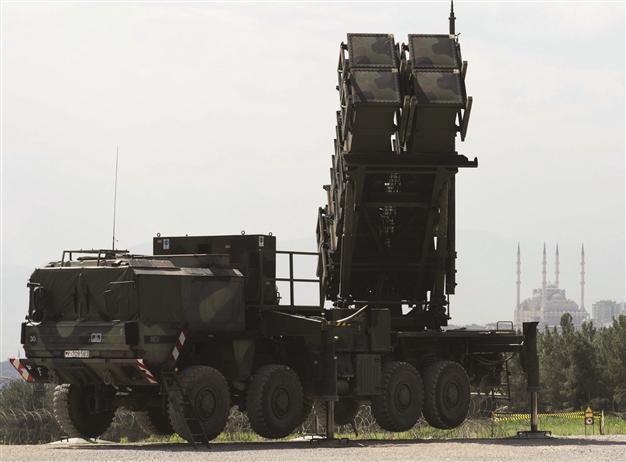Anti-missile bidders offer co-production and technology transfer
ANKARA

A German Patriot missile launcher is seen in front of a mosque in Kahramanmaraş, southern Turkey. Raytheon, maker of Patriot, is one of the bidders for first long-range air and antimissile of Turkey, in partnership with Lockheed Martin .
U.S. and European bidders for Turkey’s air defense contract have told the Undersecretary for Defense Industries (SSM) they can be flexible on co-production and technology transfer for the construction of the country’s first long-range air and anti-missile system, according to sources familiar with the issue.
However, the U.S. partnership of Raytheon and Lockheed Martin and the Italian-French consortium Eurosam also underlined the price would rise with these additional facilities.
Turkey’s defense procurement bureaucracy has been reassessing commercial and political aspects of negotiations with the Chinese winner of the bid, CPMIEC, after snags emerged during contract negotiations with the firm, including projected costs overruns of hundreds of thousands of dollars due to the necessity of integrating the system into the Turkish air defense system.
NATO has strictly objected to the integration of the systems, saying it would not be possible to integrate the Chinese-built system with NATO and the U.S. systems due to cyber security threats. The company is also on a U.S. sanction list for violating the Syria, North Korea and Iran nonproliferation act.
According to Murad Bayar, Turkey’s top procurement official, Turkey selected the Chinese system because it was better than the rival bids in terms of “price, technology, local work share, technology transfer and credit-financing terms.”
Turkey has extended a deadline for rival bidding companies to submit their proposals until April 30.
Turkey announced its decision to negotiate with China’s Precision Machinery Import and Export Corp. (CPMIEC) to co-produce anti-ballistic missile systems last September.
It then extended the deadline to April 30, after firm statements from NATO and U.S. officials that the Chinese MD-2000’s would not be interoperable with the NATO defense architecture. Turkish leaders said the deal had yet to be finalized, and that Ankara remained open to new offers from the other two bidders.
